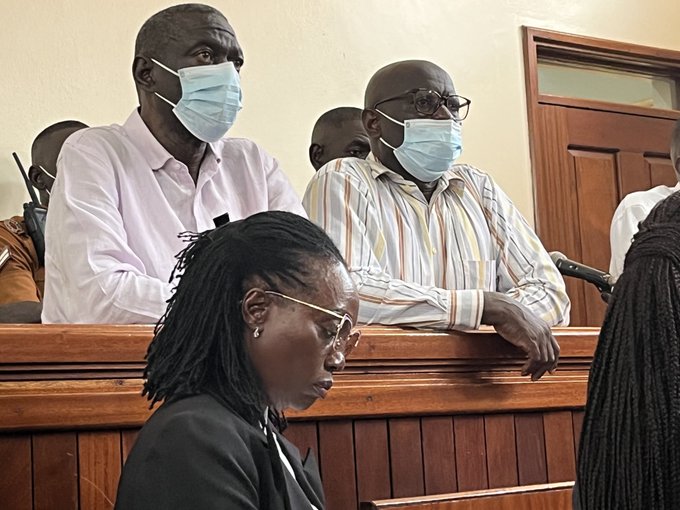Introduction
Ugandan opposition leader Dr. Kizza Besigye and his political aide, Hajj Obeid Lutale, have yet again taken legal action against the Kenyan government, challenging the legality of their arrest and forced transfer from Nairobi to Kampala. This high-profile lawsuit, filed before several courts—including Kenya’s High Court and the East African Court of Justice—raises critical questions about extradition law, human rights, and the rule of law in East Africa.
Background: The November 2024 Incident
On November 16, 2024, Dr. Besigye and Lutale lawfully entered Kenya via Jomo Kenyatta International Airport, intending to attend a book launch at the invitation of prominent Kenyan opposition figure Martha Karua. According to the lawsuit, both men were “unlawfully, forcefully, and violently abducted within Kenyan territory by security agencies from the Republic of Uganda and driven back to Uganda in the cover of darkness.” They allege that approximately eight armed men, presenting themselves as Kenyan police, detained them, only to later hand them over to Ugandan security operatives without following any lawful extradition procedure.
Legal Arguments and Core Complaints
The main thrust of the lawsuit is that the actions of the Kenyan authorities violated:
- Kenyan domestic law: Specifically, the Extradition (Commonwealth Countries) Act Cap. 77, which stipulates strict criteria and judicial oversight for extradition procedures. Besigye and Lutale argue that their alleged offenses—centered around the possession of a firearm—do not fall under the list of extraditable offenses in the Act.
- Kenya-Uganda Extradition Treaty: The agreement between the two countries does not list “possession of a firearm” as a legitimate reason for forced transfer. The legal team further argues that all proper documentation, notification, and judicial hearings were bypassed.
- International Human Rights Law: The abductions and forced renditions, conducted outside formal legal channels, are seen as violations of international human rights principles and the East African Community Treaty, particularly those concerning due process, judicial access, and personal safety.
Regional and International Implications
The lawsuit has set off a firestorm across East Africa, with claims that Kenya’s participation in such extraterritorial abductions may foster a dangerous precedent for repression and the erosion of cross-border legal protections. Human rights organizations—such as Amnesty International and the East Africa Law Society—have called the abductions a flagrant breach of international law and demanded the immediate release of Besigye, Lutale, and all others believed to be victims of similar abuses.
There is mounting concern that these events could set a precedent for transnational repression, undermining Kenya’s decades-long reputation as a relatively safe haven for political dissidents and refugees from neighboring countries. The incident further strains relations between Nairobi and Kampala, and raises questions about Kenya’s commitment to its own constitutional protections as well as its obligations under regional treaties.
Developments in Ugandan Courts
Besigye and Lutale are currently facing charges related to illegal possession of firearms and national security before Uganda’s General Court Martial, despite being civilians and despite international and domestic court decisions questioning the competence of military tribunals to try civilians. Their lawyers have persistently objected to the proceedings, pointing to the illegal manner of arrest and transfer, and have pushed for their cases to be moved to a civilian court—as recently upheld by the Ugandan Supreme Court in other verdicts.
The Plaintiffs’ Demands
Through legal firm Kiiza & Mugisha Advocates, Besigye and Lutale are seeking several remedies, including:
- $100,000 in compensation for each victim
- A permanent injunction against Kenya from participating in, condoning, or facilitating any future forced removals or abductions of foreigners from its territory without due process
- A declaration that the actions of Kenyan and Ugandan officers were unconstitutional and void
Conclusion
The renewed lawsuit by Dr. Kizza Besigye and Hajj Obeid Lutale against the Kenyan government symbolizes a broader fight for respect for the rule of law, sovereignty, and human rights in the East African region. As the case progresses, it will likely serve as a major test for legal systems in both Kenya and Uganda, and its outcome could have significant repercussions not just for the plaintiffs, but for the security and rights of political actors and ordinary citizens alike across East Africa.

